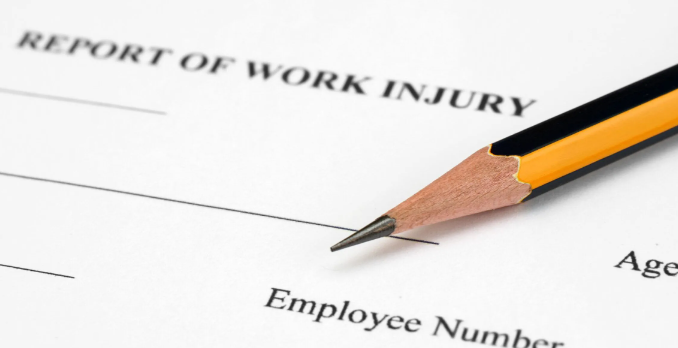work injury report If you become injured on the job, you must file a work injury claim. If you fail to report your injury, it could lead to a denial of your claim, as well as other consequences. So, how do you file a claim and when in the timeline do you need to file a claim for a work injury? Read to learn how much time you have to file a workers compensation claim and other vital information related to these types of claims.
Work Injury report Claim Form?
If you are injured on the job you must report your claim to your employer using the DWC-1 Workers Compensation Claim Form. The DWC-1 claim form is used to collect basic information about your work injury report. The injured worker completes sections 1 through 8 and then signs the claim form on line 9. On the DWC-1 claim form you provide your name and address. You must also specify the date of your work injury. Your injury date is either a specific injury date, for example you fall off a ladder, or the date is a date range for a cumulative trauma injury. For a cumulative trauma injury you enter the date you believe the activity started to cause you injury and the end date. Most often the end date is the date you file the claim.
You also need to provide a detailed description of where the injury happened and what body parts were injured. It is important to provide as much information as possible in the claim form so that your employer knows exactly what your work injuries are.
Where and When Should You File a DWC-1 Work Injury Claim Form?
You must provide the completed DWC-1 claim form to your employer as soon after the injury as possible. Simply hand deliver the completed claim form to your supervisor, human resources, or the company safety officer. If you have to mail the claim form to your employer you should mail it using certified mail with a return receipt so that you will have proof that they received the claim form.
Why You Should File a Work Injury Claim
Once you file a workers compensation claim, you are entitled to medical care to treat your work injuries through your employers workers compensation insurance company. People often take a wait and see approach which puts their claim at risk. If you do not promptly file and report your workers compensation claim, your claim may be denied. There are several time restrictions on filing a workers compensation claim. File your claim as soon as possible to avoid unnecessary delays and claim denials.
If you don’t file a work injury report, you are also out of compliance with the law. You may not be able to collect on your workers’ compensation insurance or receive other benefits that come from filing a workers compensation claim. In addition to facing the consequences for not filing a work injury report, there are also risks associated with not doing so. In many cases, doctors and other medical providers who have treated you will only treat you under their care if you file, so not filing can jeopardize your health.
We Can Help
If you have any additional questions or if you need help with your work injury report, please reach out to the Law Office of Jon Marlowe at (925) 302-9176 for more information. You can also contact us by clicking here.

